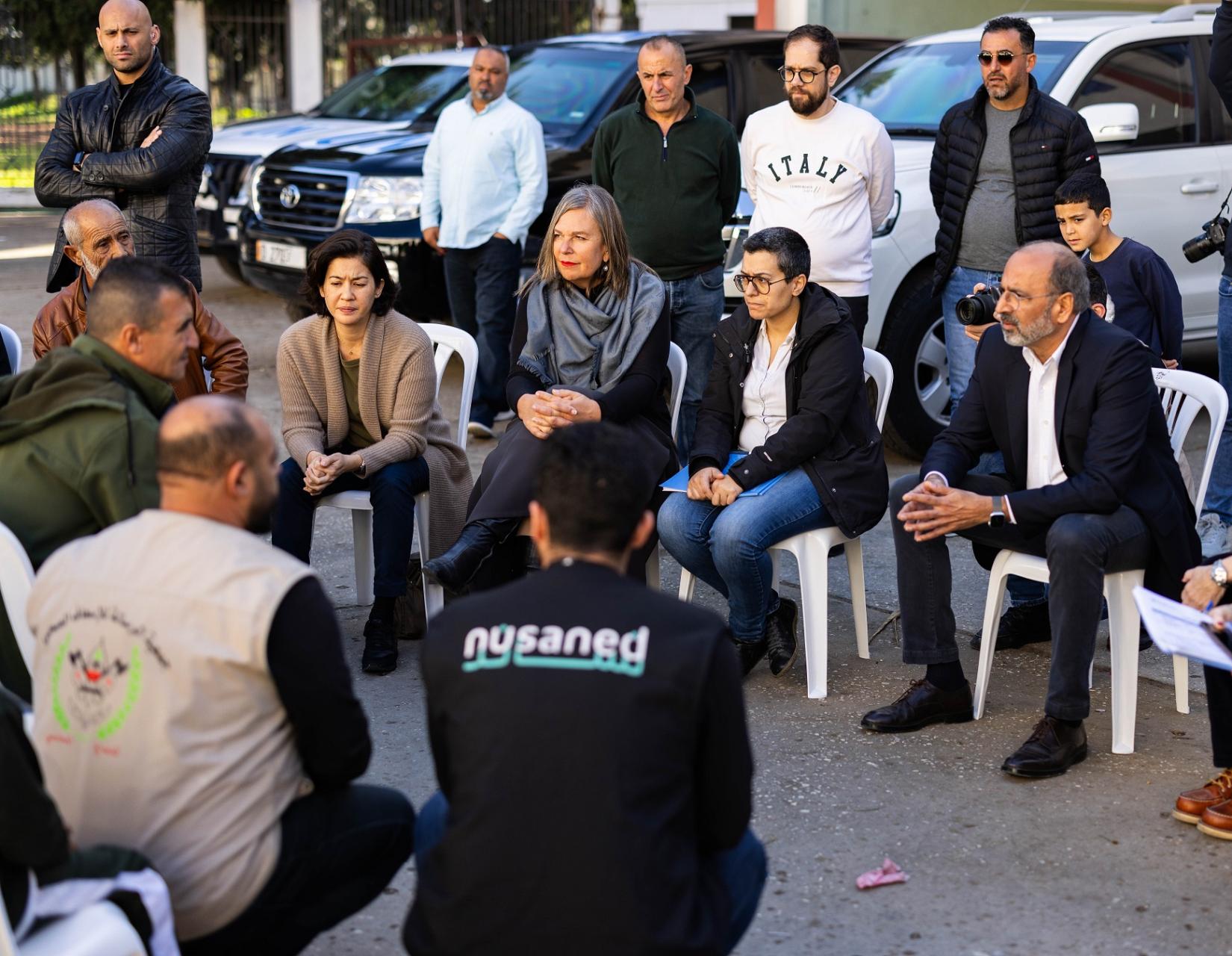"Escalation of Hostilities in South Lebanon: Growing Toll on Civilians Deepens their Struggles" -- Statement by UN Resident and Humanitarian Coordinator in Lebanon, Mr. Imran Riza
26 January 2024
BEIRUT, 26 January 2024
I recently visited southern areas of Lebanon to meet with persons affected by the ongoing hostilities. I spoke to both people who had left their homes and are now displaced and those who, despite the risks, are staying. It is clear that all are facing immense challenges.

Many spoke of the last three months being a time of loss, fear, and extreme uncertainty about the future. The ability to buffer shocks is very different today than it was the last time such displacement happened in the south, during the 2006 war.
The severe economic crisis over the past few years has also exacerbated the plight of the affected population, leaving them without savings and food stocks, and making them entirely dependent on securing some means of livelihood.
The ongoing destruction of agricultural land, coupled with insecurity and the inability to move safely due to the daily attacks, intensifies the despair among the communities.
Aisha, a 65-year-old displaced woman from Kfar Shouba, told me that she experienced displacement four times in her life. She’s tired and drained. Mohammed, a 60-year-old, who decided to stay in his border village, Hebbarieh, said that he cannot afford the costs of displacement, and despite relying on the limited aid, it's not enough.
The economic, personal, and psychological toll on the affected communities is heavy, further deepening the challenges they face.
Since the escalation of hostilities, over 86,000 persons have been displaced, with some 60,000 persons remaining in border villages highly affected by exchanges of fire. At least 25 civilians have been killed and there has been significant damage inflicted upon health centers, essential civilian infrastructure, residential houses, and agricultural lands.
I strongly renew my call to uphold international humanitarian law and safeguard civilians, medical personnel, residences, schools, and healthcare centers. Constant care must be taken to spare them.
All concerned parties must also facilitate access by humanitarians to civilians in need.
I reaffirm the United Nations' and our partners’ steadfast commitment to stay and deliver emergency relief and protection to civilians in need wherever they are.
What is needed most, however, is a de-escalation of tensions and an end to hostilities.
-ends-
For more information, please contact the office of United Nations Resident Coordinator and Humanitarian Coordinator for Lebanon:
- Ms. Helena Mazzaro, OIC. Head of Office - OCHA. E-mail: mazarro@un.org
- Ms. Kawsar Fahs, Senior Communications Officer – OCHA. E-mail: Kawsar.fahs@un.org




